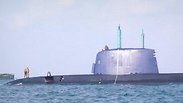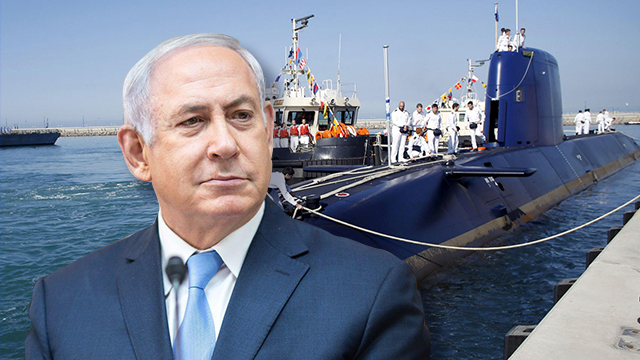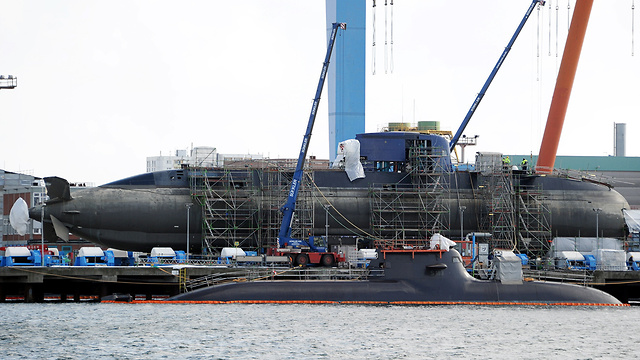

The question whether Case 3000 will conclude in indictments is intriguing, but it's not the most significant thing about this affair. When it comes to suspicion of any kind of wrongdoing, the question justifiably is whether it has crossed the line and considered a criminal offense. This is naturally the bread and butter of police investigators and the prosecution. However, the issues raised by the submarine affair concern an entirely different matter, just as important: The method in which decisions of far-reaching security consequences were made.
There are at least six issues at hand. The first concerns the question of whether the Germans were made aware that Israel was interested in acquiring an additional three submarines, for a total of nine, but that the decision was changed solely due to opposition by then-defense minister Moshe Ya'alon who decided that the three additional submarines would replace three older submarines.
Nine submarines are far beyond our need and ability to maintain. So how did such an intention come about?
The second issue is why should such a decision be made so early, years before the existing submarines become obsolete? How does the cabinet approve the army's multi-year plan, the Gideon program, and shortly thereafter come up with such a decision, above and beyond the framework of that plan.
The third issue concerns the defense minister's claim that the prime minister, without his knowledge, asked Germany to purchase two vessels with submarine detection capabilities. This is similar to the prime minister's request to purchase another F-15 squadron from the United States without the knowledge of the defense minister, the chief of staff and the commander of the air force.
Regarding all three of these issues, it is worth emphasizing that the purpose of a multi-year plan for the defense establishment is to obtain maximum security from a given budget. It is possible and necessary to argue about the optimal balance, but it is unreasonable to make sporadic decisions without understanding the full alternative price, and it is impossible to decide, and certainly not to convey this to another country, before conducting an in-depth internal discussion among the Israeli decision-makers.
The fourth issue is more troubling: the cancellation of the tender for the purchase of ships to protect Israel's naval economic zone and the unilateral decision to purchase these ships from Thyssenkrup, which, unlike for submarines, has no obvious advantage in this field.
It turns out that eventually , large (and more expensive) ships were purchased, more than initially required. True, there are situations in which it is better not to conduct a tender and to carry out a transaction between two states (the GTG transaction for example), but in such cases the other state also commits to purchasing equipment of similar value from Israel. That is not what happened here, and it is apparent that unusual pressure was applied, which led to the puzzling decision.
The fifth issue concerns the unusual request by the German company for the Histadrut Labor Union that the navy shipyards be privatized.Considering that the shipyard is the property of the IDF, it is highly unusual, to say the least, for property purchase negotiations to take place behind the landlord's back. Who was aware and who collaborated with this?
The sixth issue, and the most troubling of all, is the claim that an Israeli official told German Chancellor Angela Merkel that Israel had no objection to Germany selling advanced submarines to Egypt without the knowledge of the defense minister.
There may in fact be no criminal aspect to any of these issues, but should these matters only be examined through the criminal prism? Does the police have the necessary data, experience and motivation to examine this?
These are issues relating to two completely different areas: foreign policy and security, and the way in which the Israeli government operates, including the boundaries of responsibility between the various parties.
Without underestimating the severity of the criminal suspicions, it seems that the more important are the issues reviewed in Case 3000 — the matters of military-strategic procurement process and the manner in which decisions are made —the less interest they raise.


















